Thousands of Ukrainians have been welcomed into Australian hearts and homes
Melbourne’s Stefan Romaniw recently visited Ukraine to see for himself the terror unleashed by Russian president Vladimir Putin.
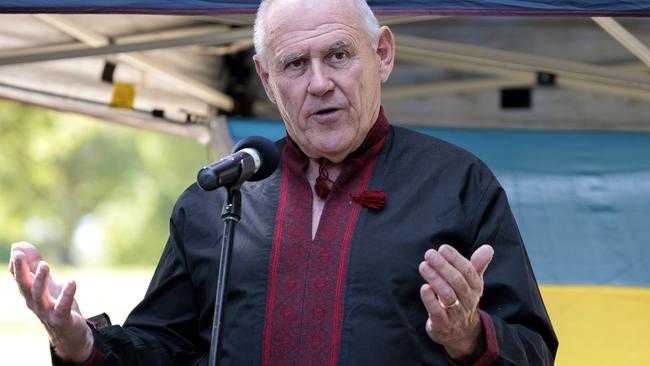
Australians have opened their homes and their hearts to Ukrainians fleeing the war imposed on them by Russian President Vladimir Putin.
Already, about 2500 have arrived, mostly on tourist visas, but, as recommended by Prime Minister Scott Morrison, these are being converted to humanitarian visas, so they can work here, attend school and take part in sponsored English language courses.
Melbourne’s Stefan Romaniw travelled to Ukraine last month to see first-hand the terror of the Russian invasion he had long believed was inevitable. A stalwart of the Ukrainian-Australian community, he is co-chair of the Australian Federation of Ukrainian Organisations and First Vice-President of the Ukrainian World Congress.
After appearing on Channel 7’s Sunrise last Australia Day, Romaniw was criticised for suggesting war with Russia was inescapable. “I got feedback saying, ‘You are a warmonger’. But blind Freddie could see what was happening,” he says.
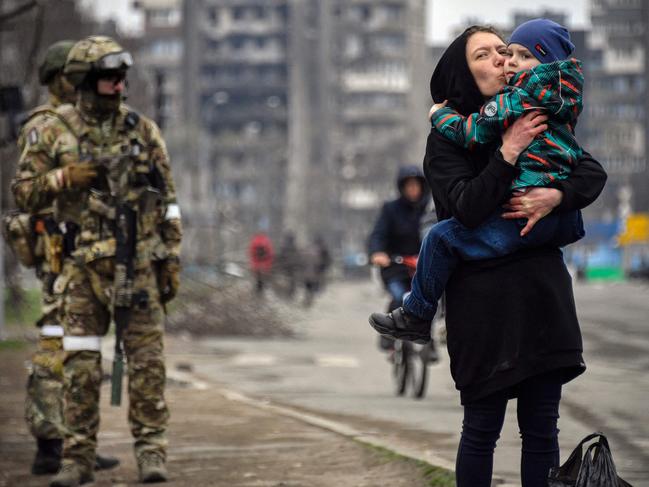
Russia has long bullied Ukraine, biting off chunks of territory in 2014, annexing Crimea and encouraging separatists in Russian-speaking areas in the east. And for years the world looked on with listless indifference.
The Kremlin’s deputy chief of staff made Russia’s intentions pretty clear as far back as April last year saying it would go in to Ukraine to “help” Russian speakers. While no one else could see what help these people needed, the aggressive Dmitry Kozak said any resistance by Ukraine would invite invasion and this would signal the “beginning of the end”.
Ukraine would face “not a shot in the leg, but in the face”.
“If you look at Ukrainian history there has always been a battle between the Russians and the Ukrainians,” Romaniw says. “It is horrible to say, but this is the war that Ukraine had to have, because when it wins it, that will be it.”
Putin risibly claimed Russia needed to “de-Nazify” Ukraine. Romaniw believes many Russians – of course not all, as we see in street demonstrations – really have swallowed the Putin line, spread by the country’s controlled media, that Ukraine’s leadership is made up of bourgeois nationalists and deviant Nazis.
Romaniw despairs at the fate of the eastern territories of Donetsk and Luhansk, now claimed by Putin. “Would we give away Tasmania and Western Australia?” Romaniw asks.
“Putin says he is there to protect Russians from Ukrainian nationalists; well, it’s interesting that since the Russian troops came eight years ago more than 1.5 million people have left that region.”
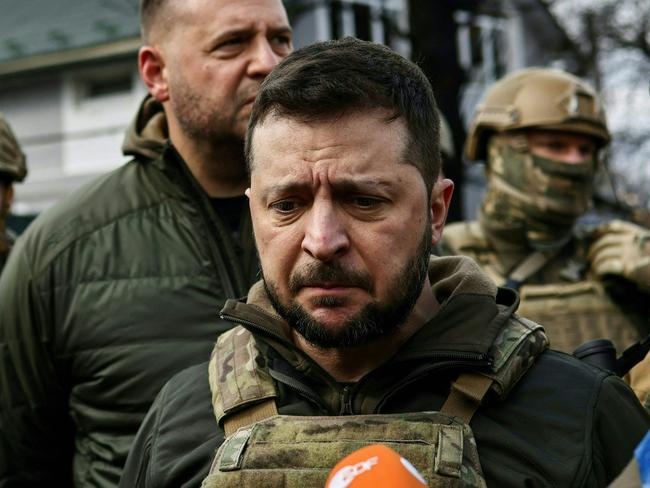
Those of Ukrainian heritage in Australia are “hurting – they are hurting badly”, says Romaniw. “My wife cries every day. People understand that Ukraine is under attack and they ask why. All this shooting and killing and children and displacement.”
He says the community in Australia has always been close to Ukraine even though it is so far away. “It was close to Ukraine through 1991 (with the collapse of the Soviet Union). We called then for a free Ukraine. Since then the local Ukrainian community has tried everything to assist in developing Ukraine.
“In 1991 there was a referendum and 92 per cent of the population voted for independence, including eastern Ukraine.
“The Ukrainian parliament voted for European integration. At no stage have Ukrainians said we want to be enemies of Russia. They want to go to Europe because that’s their lifestyle.
“They don’t want a Soviet lifestyle. These people have travelled. They have seen the world. They have made a choice.”
Romaniw believes the almost universal liberal democratic values bind Australia and Ukraine. But in Ukraine today those values have been not only tested, they are being put down.
“Those buildings that have been under missile attack and have been ruined, a lot of Australians have been to Ukraine. They know those buildings,” he says. “If Putin is able to take Kyiv and overthrow the government we will have a completely different country.”
He would like to see the Russian ambassador expelled from Australia “because he represents a tyrant”.
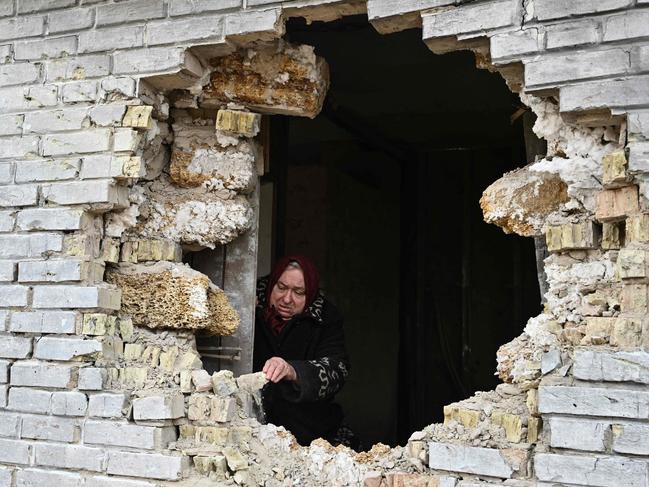
He says Putin has been humiliatingly caught out. “It’s not just Ukraine. The Poles will be worried. The Baltic states (all of which are NATO and EU members) will be worried. Belarus, Moldova, Georgia. It’s only now that people have started to realise what this is all about.”
Many of the Ukrainians in the east are Russian speakers, but Romaniw believes them to be even more patriotic (to Ukraine) than those in the west of the country.
“The people in the east have had to fight for their Ukrainian identity,” he says. “The reason they speak Russian is because of the many years of dominance (by Moscow). Putin has been handing out Russian passports there as a way to justify the situation.
“Only now the world realises they should have acted on Crimea and they should have acted in 2014.”
As the grim death count rises by the hour, I ask Romaniw if Zelensky is coming under pressure internally to reach a deal that stops the killings?
“There may have been two camps in Ukraine, and possibly two camps in his administration. One camp is saying ‘we are going to fight this to the end’, and the other, ‘we’ve got to find a compromise solution’,” Romaniw explains.
“It would appear now that there is one camp – fight to the end. And if there are to be negotiations they will be on Ukraine’s terms. To date, often there have been negotiations about Ukraine without Ukraine. No more.
“At the moment he is hellbent on a fight to the end because, as Zelensky has said, here are the things that are not negotiable: people and regions and sovereignty.”
A decade back, Ukrainians were lukewarm about NATO membership, believing it might provoke the Russians to war, but “now they realise they need protection”.
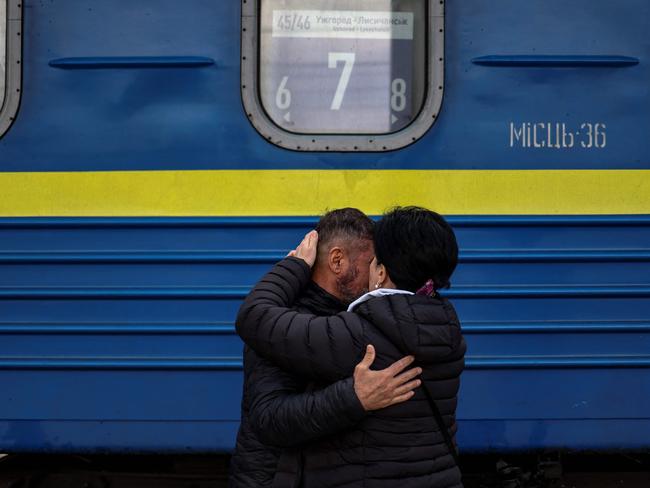
Romaniw is not that surprised by the sluggishness – so far, at least – of the Russian defence forces, whose chaotic performance has surprised Western observers. “They’ve lost their leaders; they’ve lost the plot.”
Nonetheless, he is wary about the pause to the Russian attack. It may be that Putin is resetting for a different attack, perhaps to shore up his bloody gains in the east. But there is clear evidence Ukrainian intelligence has proved superior.
“I think Ukraine had prepared for something,” says Romaniw. “Whether they prepared for something as bad as this, I am not quite sure.”
He applauds the Minister for Defence, Oleksii Reznikov, a lawyer who has been in the role only five months. He had delivered strong leadership over the rebuilt army and, with increasing confidence, 1.5 million Ukrainians have volunteered to fight.
The local territorial brigades are proving invaluable and it is these Romaniw wants to see kitted up with help from the West, including Australia, starting with helmets and first-aid materials.
Measuring the mood of Ukrainians last week, Romaniw says: “They are determined they will fight. Ukraine will not give in.”
He met Ukrainians bombed from their homes arriving at the Polish border, traumatised. “And you know what they say? ‘I want to go back. My husband or my father or my brother is fighting. We will win this. We are determined. We will not give in. To victory!’.”
And he believes Zelensky has grown into the job. “There were a lot of question marks when he was elected as a populist President,” says Romaniw. “He initially possibly thought this is going to be an easy job with 73 per cent of the population behind him.
“Zelensky has now shown that he is made of steel. I think the turning point was when he said ‘Don’t give me a ticket (out), give me bullets’. How many other leaders in war situations would have done what he’s done, slap bang in the middle of the war? He’s got character. He’s strong and he’s got emotion.”
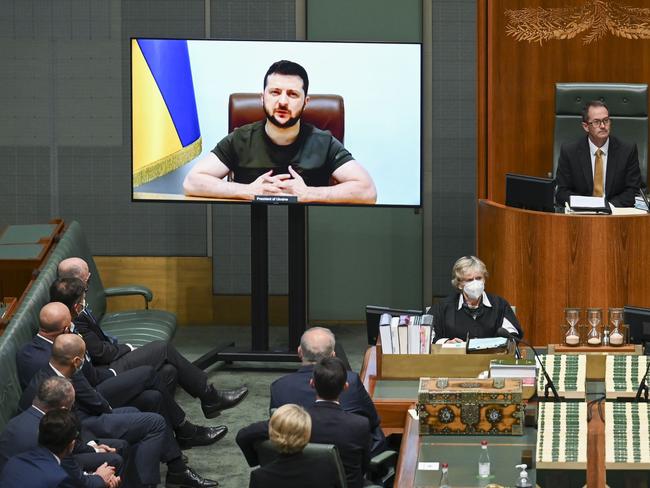
Because of travel restrictions of the past two years, Romaniw and UWC communications with Zelensky and his team have been via Zoom.
“Prior to the war he appealed to us to lock our governments into support for Ukraine – he was talking economic support. We need to develop the economy.
“More recently he has asked for military support and sanctions.”
Morrison has told Romaniw he also believes territory and sovereignty are non-negotiable. Both he and Opposition Leader Anthony Albanese have said they will back Ukraine “to the hilt”.
There are 48,000 Australian Ukrainians, and about 20 million in 65 other countries.
Romaniw wants to return to Ukraine soon. “I want to go back. You need to know the lay of the land.”
And he is proud of how Australia has helped out.
“Australia has already done a hell of a lot,” he says. “It’s punched well above its weight. Australians have understood the situation. They have offered their homes to displaced people. Industries are offering workplace positions. Governments at all levels are willing to support the people who are here.
“We started off with humanitarian aid, then it was military aid, and now it’s lethal military aid.
“Give us lethal weapons. Give us surface-to-air weaponry. Give us that and we’ll win.”




To join the conversation, please log in. Don't have an account? Register
Join the conversation, you are commenting as Logout